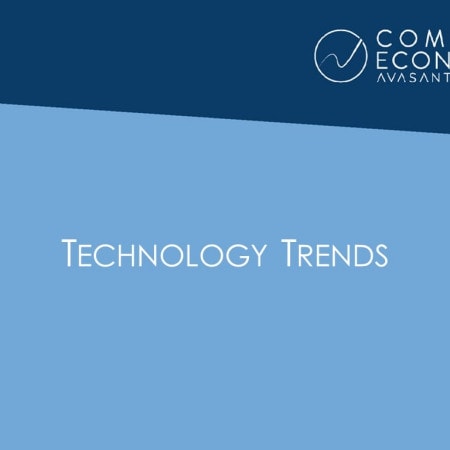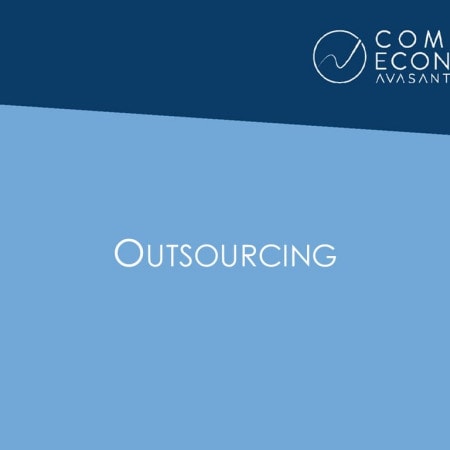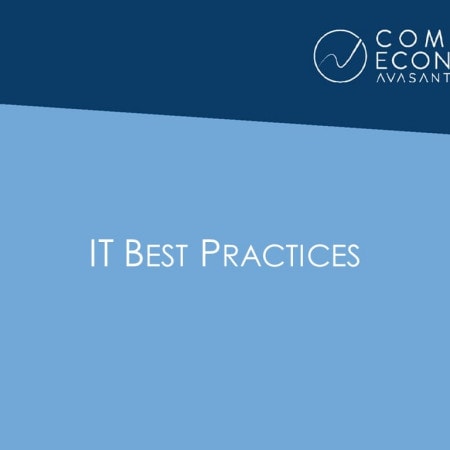-

Microsoft Dynamics Stepping onto Large Enterprise Turf
Long known as business management software for small and midsized organizations, Microsoft Dynamics is increasingly being used in large and multinational enterprises. This report outlines four customer needs that are driving Microsoft Dynamics up-market and three ways in which Dynamics has become capable of serving these large organizations. Challenges facing Microsoft in gaining market share among larger companies are also discussed. We conclude with examples of customers that illustrate the move of Dynamics into the enterprise market and recommendations for large enterprise buyers who are considering Microsoft Dynamics. (12 pp., 1 fig.) [Research Byte]
December, 2012
-

Google Enlarges Its Enterprise Applications Footprint
Google's recent $625 million acquisition of Postini sends a signal that the company intends to be a major player in the on-demand enterprise application market. However, the big question is whether Googleâs desire to be a major player in the enterprise applications market goes beyond the desktop to backend systems such as ERP and CRM systems. (2 pp., 1 fig.)[Executive Summary]
July, 2007
-

Healthcare Moving Slowly on Internet Applications for Utilization Management
In a national study of utilization management (UM) and other medical management practices, American Accreditation HealthCare Commission (URAC) found that less than 40% of survey respondents currently use the Internet for pre-certification of clinical procedures. However, UM leaders expect to move rapidly towards electronic capability, with a full 94% indicating that customers want more electronic transactions.
September, 2002
-

Supercomputers Move Into Commercial Applications
If you need scalability, nothing beats the capabilities of a supercomputer. Today TFLOPS (trillion floating point operations per second) machines are common, and within the next ten years, supercomputers will be running ten times faster. While supercomputers have long been used in government laboratories, the widespread use of these machines in commercial applications has been a quietly growing phenomenon.
September, 2002
-

Choosing the Right Off-Shore Outsourcing Company
During the past few years, offshore IT outsourcing has emerged as a viable and economic solution to today's crippling domestic IT worker shortage. Companies have found that offshore IT outsourcing saves them up to 50% or more in total project costs by eliminating personnel recruitment costs, sky-high IT payrolls, and the expenses associated with offering benefits and providing physical space and equipment for new hires.
September, 2002
-

Will Peer-to-Peer Computing Move Into Your Enterprise?
Peer-to-peer (P2P) computing may become the cornerstone for new applications that make PCs more cost effective and provide users with more flexible and powerful collaborative capabilities. P2P computing applications reside on local clients distributed over a network that does not need intervening servers. This architecture is significantly more capable than the infamous Gnutella and Napster music file servers that use similar technology.
September, 2002
-

Weak Security Allows Sales Reps to Defraud (July 2002)
Only weeks after WorldCom revealed that some of its top sales representatives had manipulated its antiquated incentive compensation system to defraud the company of millions of dollars, a survey of executives was conducted at the spring Synygy Incentive Compensation Conference, held in Phoenix in March 2002.
September, 2002
-

Make Knowledge Management Pay Off Through New Collaborations (Dec 2000)
Knowledge management (otherwise known as information sharing, human capital, or intellectual property) has absorbed the efforts and money of many organizations. Unfortunately, many of these often expensive efforts have not led to positive returns. Studies of returns on these efforts frequently show that they fail to achieve their goals and sometimes are not even minimally effective. Typically three-quarters of these projects do not meet full expectations and half are total write-offs.
August, 2002
-

IT Ergonomics Add New Element to TCO
The threat of litigation and the filing of widespread workmanâs compensation claims are forcing companies to find remedies for the poor ergonomics of standardized off-the-shelf IT products. To determine how large corporations are dealing with this problem, Computer Economics conducted a focus group of 16 companies that reported they had remedies in place. We also contacted five of our associates in the legal field and asked their opinion of potential corporate liability of IT ergonomics.
August, 2002
-

Corporate Expenditure Forecasts for CRM
Although Customer Relationship Management (CRM) systems are still in their technology development phase, companies have spent close to $4 billion on CRM software this year. Factoring in all surrounding expenses, CRM grew to a nearly $50 billion industry in 1999 and is expected to grow significantly through 2003.
August, 2002
-

Trivial Online Secret Sharing: A Secret Splitting Scheme Supporting General Access Structures
In our last analysis, we discussed a variety of secret sharing techniques. In this analysis, we will discuss a specific secret sharing scheme. The scheme was developed by Christian Cachin and published in 1995. It overcomes some limitations found in earlier techniques.
August, 2002
-

In Search of Data Warehousing Success (Jul 2000)
The promise of data warehousing has long outweighed the reality. We receive numerous requests from clients for advice on managing and benchmarking data warehousing projects. We have helped to develop budgets, long-range implementation plans, and determine potential return on investment for several of our clients.
August, 2002
-

Linux Changes Economics of Mainframe Computing
It depends is a phrase familiar to anyone analyzing mainframe system capacity or performance, whether discussing computing economics or characteristics. It has been decades since commercial software was provided free--or, more accurately, bundled with hardware. Since then, IBM software licensing terms and fees have changed several times, most recently to dramatically favor Linux-based computing.
May, 2002
-

Capture Web Payoffs With Scripting Languages (Apr 2001)
Anyone perusing the WWW today immediately notices that sites are growing evermore complex. Dazzling graphics, full-motion video, and high-quality sound all contribute to enhancing the viewer's experience. Many e-commerce sites are coupled to databases, so orders can be processed and inventory updated in realtime. To compete in this environment, your websites must offer equivalent or better features to maintain the interest of site visitors and stand out from the competition.
May, 2002
-

E-Commerce Economic Secrets Revealed (May 2002)
Ideas regarding how e-commerce compares to how traditional marketplaces operate abound, but few of those opinions are based on empirical facts. Economic studies have shed light on the price levels, consumer sensitivity to product prices (price elasticity), overhead for changing prices (menu costs), and online price dispersion.
May, 2002

 Grid View
Grid View List View
List View